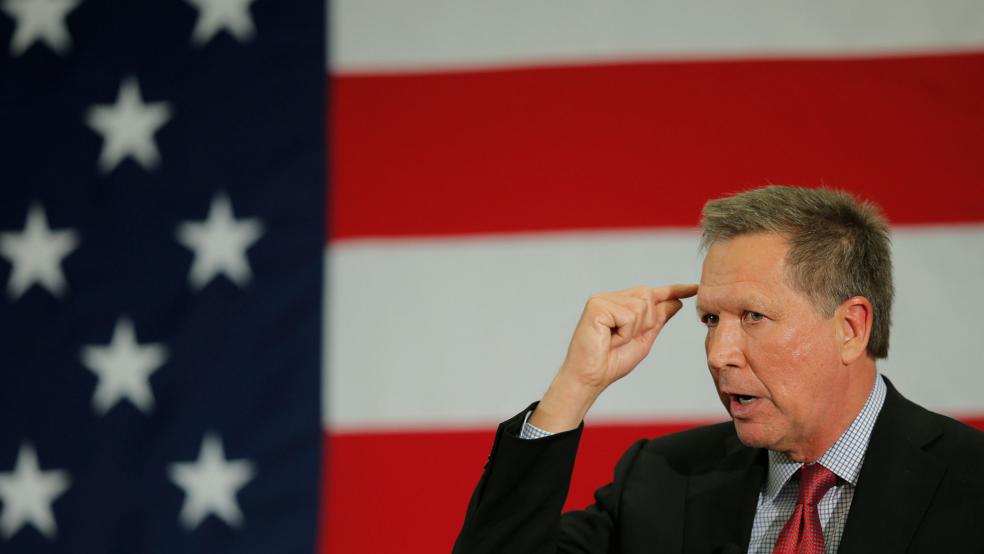One of the things Gov. John Kasich of Ohio has going for him in his long-shot bid for the GOP presidential nomination is his status as a serious student of government, with years of practical experience under his belt as chair of the House Budget Committee during the “Republican Revolution” of the late 1990s.
During the Clinton administration, Kasich drew kudos for his role as a leading architect of the bipartisan Balanced Budget Act of 1997, which led to the first budget surpluses since the 1960s. Kasich and other Republican leaders championed a tough, politically risky strategy that combined tax cuts with sharp reductions in defense, Medicare, Medicaid and other entitlement programs.
Related: 10 Things You Need to Know About John Kasich
Kasich was bent on dramatic changes in the way the federal government operated and did business, but within the framework of the existing federal system.
Fast forward to Thursday, when Kasich – struggling to keep his presidential hopes alive – unveiled a new blueprint for wiping out the current budget deficit: The sharp tax cuts are still there but now Kasich is declaring the federal government hopelessly “obsolete” and calling for a major shift in power and resources to the states.
While Republican and Democratic lawmakers, business and labor leaders, and a majority of governors and state officials are clamoring for passage of major new highway and mass transit construction legislation, Kasich proposes dismantling the federal Department of Transportation and returning federal gas tax revenues to the states.
“The interstate system is long finished, and states already oversee their own highway design and construction,” he wrote in an op-ed piece in The Washington Post. “Americans don’t need a costly federal highway bureaucracy,” he wrote. “I will return the federal gas taxes to the states, leaving only a sliver with the federal government for truly national needs.”
Related: Does Kasich Have a Chance? How He Can Catch Up to the GOP 15
The proposal overlooks the fact that the 14.3-cents per gallon federal gas tax is woefully inadequate in meeting existing federal highway program costs and that the Highway Trust Fund provides only about a quarter of all transit and highway financing nationwide. Slicing and dicing already inadequate funding and turning it back to the states based on some ill-defined formula doesn’t sound like a recipe for success.
Kasich is also proposing some other Republican chestnuts for downsizing the federal government – including all but closing the Department of Education, eliminating dozens of job training programs and giving more responsibility for Medicaid to the states. “There may have been a time when our nation’s size and complexity required a strong, centralized government, but today’s technology gives states access to the same ideas and capabilities as Washington – and they can execute faster and more efficiently.”
Who knew that Kasich, long viewed as a steely-eyed, moderate pragmatist, was actually a radical in disguise. Or perhaps, like Wisconsin Gov. Scott Walker before him, Kasich believes he must somehow convince increasingly skeptical voters that he is a true “outsider” determined to bring the federal bureaucracy to its knees in order to salvage a struggling presidential campaign.





